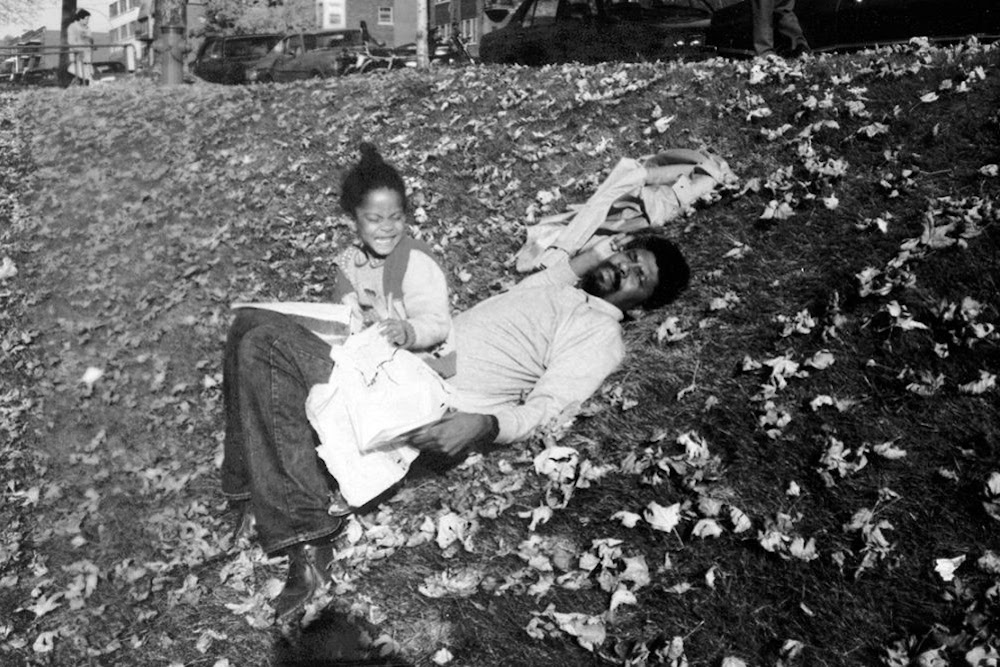Every week, the editors of The Paris Review lift the paywall on a selection of interviews, stories, poems, and more from the magazine’s archive. You can have these unlocked pieces delivered straight to your inbox every Sunday by signing up for the Redux newsletter.
This week at The Paris Review, we’re reading Black voices from around the world. Read on for Dany Laferrière’s Art of Fiction interview, Wayétu Moore’s “Gbessa” (the first chapter of her novel She Would Be King), and Wole Soyinka’s poem “Your Logic Frightens Me Mandela.”
If you enjoy these free interviews, stories, and poems, why not subscribe to The Paris Review and read the entire archive? You’ll also get four new issues of the quarterly delivered straight to your door. And for as long as we’re flattening the curve, The Paris Review will be sending out a new weekly newsletter, The Art of Distance, featuring unlocked archival selections, dispatches from the Daily, and efforts from our peer organizations. Read the latest edition—which lowers the paywall on six Writers at Work interviews with Black American authors—here, and then sign up for more.
Dany Laferrière, The Art of Fiction No. 237
Issue no. 222 (Fall 2017)
INTERVIEWER
In 2013, you were elected to the Académie française, the first-ever Haitian or Quebecois writer to join their ranks.
LAFERRIÈRE
Yes, but first they had to sort out whether I was even admissible. You are supposed to be French. It turns out this wasn’t a written rule. At the time the rules were written, they couldn’t even imagine including someone not born in France or a French colony or département, or a naturalized Frenchman. A Haitian in Montreal is none of the above. To be eligible, you also have to live in France—which I did not. So the question became, is it the Académie française as in the French language? Or as in France? The president of the République decided the question—it’s the Académie of the French language. This decision permitted my candidacy to proceed. It was what they call “une belle élection.” I was received with enthusiasm, in the first round of voting. It took Victor Hugo something like four rounds, Voltaire three!
Gbessa
By Wayétu Moore
Issue no. 225 (Summer 2018)
Lai was hidden in the middle of forests when the Vai people found it. There was evidence of earlier townsmen there, as ends of stoneware and crushed diamonds were found scattered on hilltops in the unexpected company of domestic cats. But when the Vai people arrived from war-ravaged Arabia through the Mandingo inland, they found no inhabitants and decided to occupy the province with their spirits.
Your Logic Frightens Me Mandela
By Wole Soyinka
Issue no. 107 (Summer 1988)
Your logic frightens me, Mandela,
Your logic frightens me. Those years
Of dreams, of time accelerated in
Visionary hopes, of savouring the task anew,
The call, the tempo primed
To burst in supernovae round a “brave new world”!
Then stillness. Silence. The world closes round
Your sole reality; the rest is… dreams?Your logic frightens me.
How coldly you disdain legerdemains!
“Open Sesame” and—two decades’ rust on hinges
Peels at touch of a conjurer’s wand?
White magic, ivory-topped black magic wand,
One moment wand, one moment riot club
Electric cattle prod and club or sjambok
Tearing flesh and spilling blood and brain?This bag of tricks, whose silk streamers
Turn knotted cords to crush dark temples?
A rabbit punch sneaked beneath the rabbit?
Doves metamorphosed in milk-white talons?
Not for you the olive branch that sprouts
Gun muzzles, barbed-wire garlands, tangled thorns
To wreathe the brows of black, unwilling christs …
And to read more from the Paris Review archives, make sure to subscribe! In addition to four print issues per year, you’ll also receive complete digital access to our sixty-seven years’ worth of archives.
from The Paris Review https://ift.tt/3f8Sxd6



Comments
Post a Comment